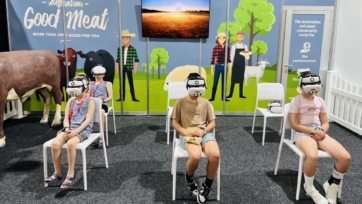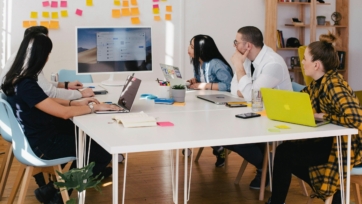3 Ways The Education System Has Shifted
3 Ways The Education System Has Shifted, And What This Means for Your Education Program
When I think back to my school days, the focus was on remembering facts and being quizzed on them later; you had to remember your times tables, significant dates in history and the features of a plant cell to excel in exams. How many of us can say that we use this knowledge every day in our current jobs? Unsurprisingly, classroom pedagogy (beliefs around teaching and learning) and best practice have transformed to suit our modern world. Teachers now realise that deep engagement and high achievement stem from skill-based education, where content is created by students, rather than consumed. Students are literally creating their own pathways as they explore the world around them, making connections to existing knowledge and scaffolding their learning in a way that is meaningful to their individual experiences.
Here are three ways education has shifted since we sat in the classroom and how this is likely to impact the resources you create:
1. Modern classrooms are labs of learning, where students are encouraged to critique their world, identify and solve problems collaboratively, and reflect on their own and other’s experiences in order to develop, evaluate and upgrade themselves as learners, ready to tackle the world after school.
Because of this, classroom resources should reflect skills such as collaboration, communication, critical thinking, problem solving, creativity and effective use of technology.
2. Instead of relying solely on test results and knowledge regurgitation to determine what students know, teachers now provide more opportunities for students to demonstrate their knowledge and understanding of content through the creation of something new. Student work often shows the way they have examined and analysed content before applying concepts and understandings to an original situation while justifying their choices.
Your resources should therefore provide opportunities for students to create or demonstrate their understanding of the key content or messages. This could be in the form of a design solution, a project, a piece of art, an essay, etc, but should challenge students at their intended learning level..
3. The rise of Inquiry-Based Learning (IBL) in classrooms encourages curiosity about learning, on the premise that students are more likely to retain content if they are curious about it. Teachers will preface lessons with an opportunity to ask questions, reflect on experiences and react to provocations to drive initial curiosity of the topic before diving into the learning phase (the ‘doing’). An example of a simple Inquiry Based Learning project for lower primary could be to ‘explore properties of different materials’ by first asking students; How do cruise liners stay afloat? thus prompting students to:
- Wonder about the concept of floating
- Explore different boat sizes and types
- Explore a range of appropriate materials for boats
- Design a boat to float in a plastic tub
- Evaluate how much weight their boat can take before sinking
The IBL methodology can be a great way to extend flexibility to the structure of your classroom resources by promoting ‘wonder’ about a topic. Deeper processing of important information transpires if learners are responding to stimuli in the medium of their choice, rather than passively answering predetermined questions. Resource creators should consider the diverse needs of learners when determining the nature of the resources they create, as well as how to deeply and meaningfully engage students in a concept.
Next steps?
- Audit your existing resources and consider how they support modern pedagogy
- Understand more about the role of methodology in best practice teaching to provide value for teachers in your resources
- Update your existing resources or create new resources that deliver meaningful opportunities for students to be creators instead of consumers
Don’t have the time or expertise? Contact Kimberlin Education and let us ensure your resources are engaging and meaningful for the modern classroom.




